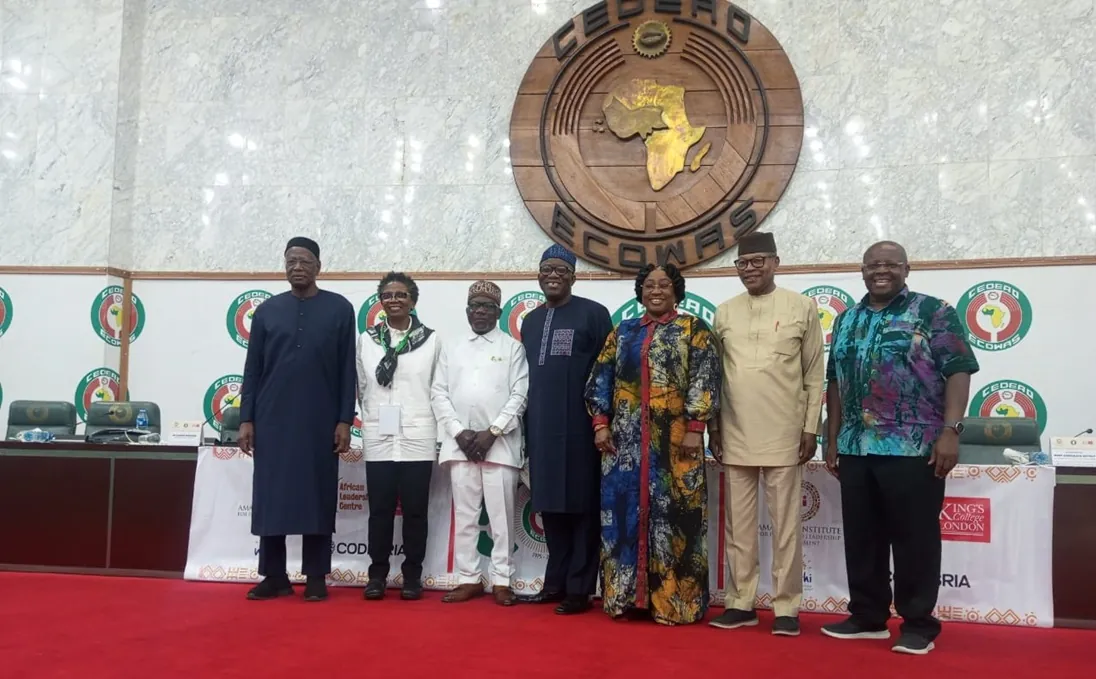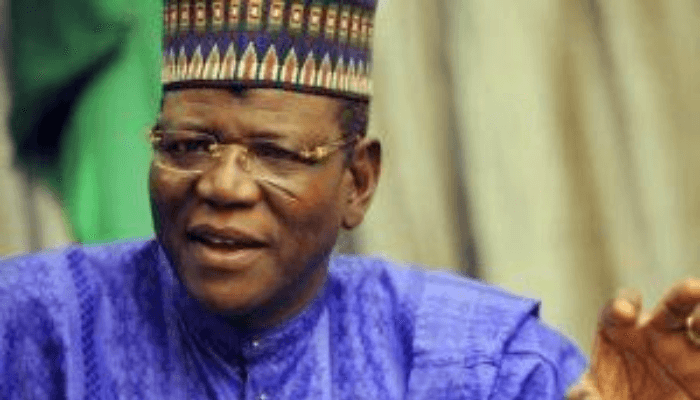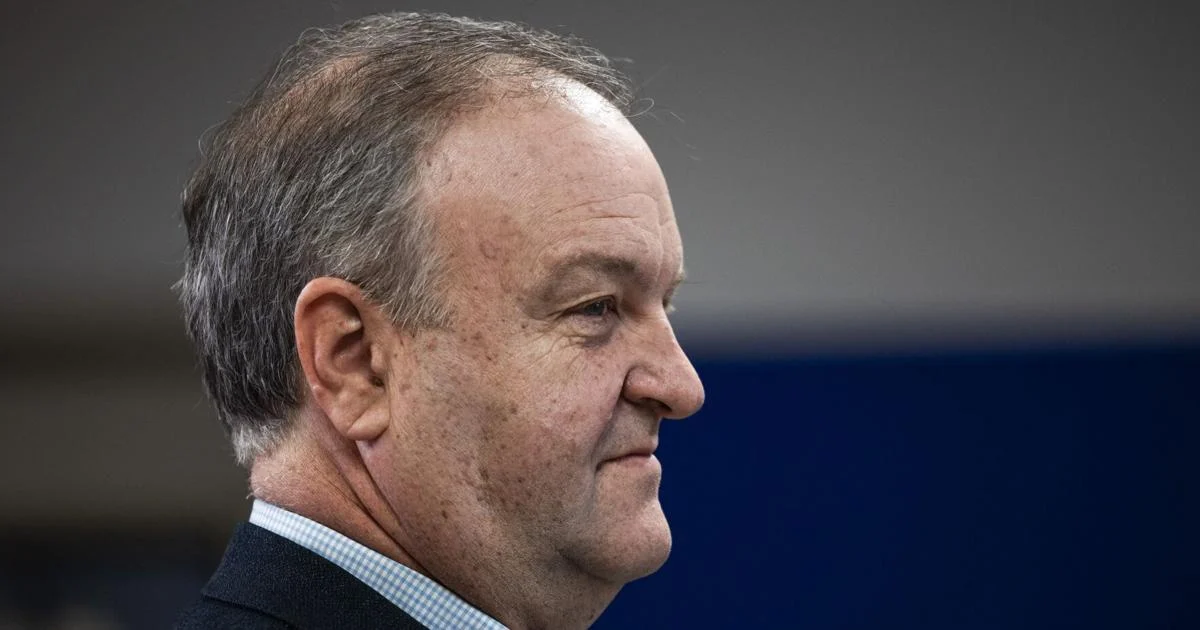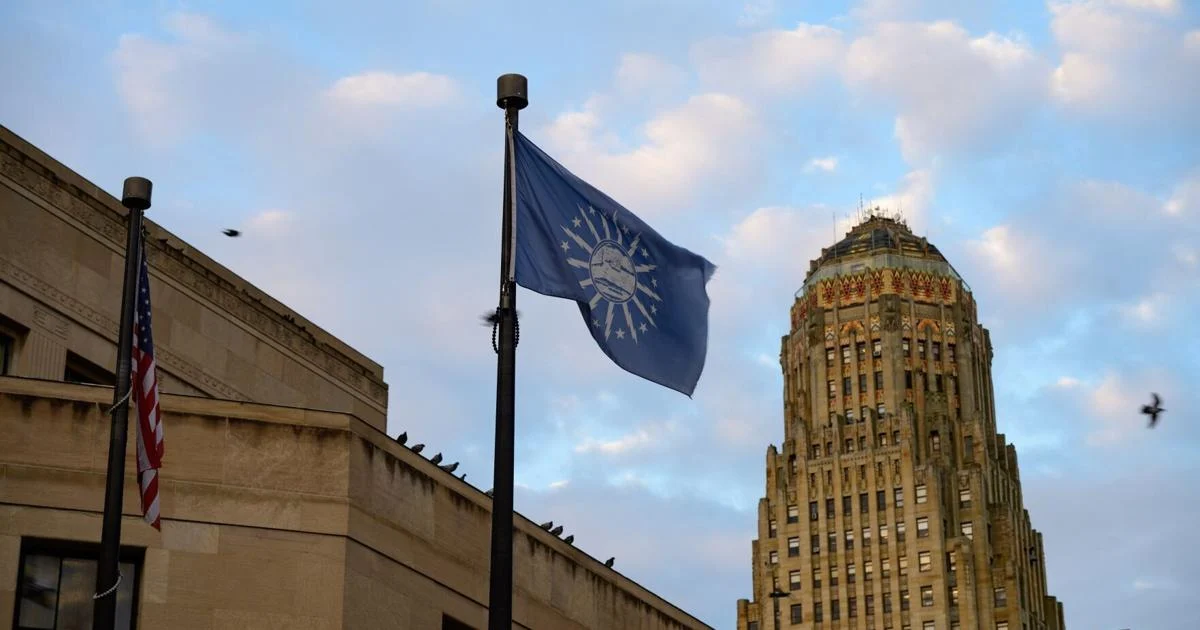Copyright tribuneonlineng

Co-Founder of the Amandla Institute and former Governor of Ekiti State, Dr. Kayode Fayemi, has urged the Economic Community of West African States (ECOWAS) to transform from an elite-driven organisation into a people-centred community that genuinely addresses the aspirations of its citizens. Fayemi made the call in Abuja at a high-level Meeting of Experts and African Public Square themed “Reimagining West African Regional Cooperation and Integration: Alternative Futures.” The event was jointly organised by the Amandla Institute and the African Leadership Centre (ALC), in collaboration with CODESRIA and Wathi. While speaking further, Fayemi described the gathering as “a timely and critical conversation” on the changing dynamics within ECOWAS, deepening security and governance challenges, and the future of regional integration in West Africa. “This important gathering presents us with an opportunity to reimagine the regional integration project in all its dimensions—economic, security, political, and structural,” Fayemi stated. “We must acknowledge the significant contributions of ECOWAS in shaping regional peace and development.” He lauded ECOWAS for being a “pacesetter among regional economic communities” and for pioneering “norms and standards on peace, security, democracy, and good governance,” citing its “laudable rescue missions in Liberia, Sierra Leone, Côte d’Ivoire, Gambia, and Guinea-Bissau.” Fayemi, however, said that despite these achievements, the regional body must reinvent itself to remain relevant. “There were strong concerns that the promised transition from an ECOWAS of rulers—an elite club of incumbent leaders—to a community of the people was not happening,” he said. “Internal reforms designed to make the Community more agile have stalled, leaving ECOWAS remote from the peoples it was meant to serve.” He lamented that progress in intra-regional trade and the establishment of a single currency had been “far from optimal,” noting that persistent obstacles to investment and trade flows reflected “a deficit of political will among leaders.” “The ECOWAS single currency has become an endless wait as the target date keeps shifting on account of various technicalities,” Fayemi observed. “While efforts have been made to improve the internal finances of the Community, inadequate funding remains a huge challenge.” He also warned that ECOWAS’ dependence on external donors had opened the door to manipulation. “The uncoordinated response of West Africa to the European Union’s Economic Partnership Agreements is a case in point. External actors have embedded themselves in the structures and processes of the Community.” Turning to the region’s worsening security situation, Fayemi stressed that “traditional military strategies alone are inadequate” and called for a more intelligence-driven and people-focused approach. “What is needed is a comprehensive human security strategy that addresses poverty, inequality, and governance failures which extremist groups continue to exploit,” he said. He cautioned citizens against viewing military rule as an alternative to weak civilian governments. “While many are frustrated with civilian leaders, military rule is not a viable solution,” Fayemi warned. “History has shown that military regimes do not provide sustainable answers. In the three countries that have exited ECOWAS, terrorism and insecurity have actually worsened since the coups.” Fayemi urged ECOWAS to find ways to engage the breakaway states—Burkina Faso, Mali, and Niger—without alienating them further. “ECOWAS has always been flexible and adaptive,” he said. “There is no reason why the Sahelian bloc cannot continue to be part of ECOWAS even if they insist on maintaining a distinct identity. The goal should be to preserve regional cooperation, stability, and development.” He stressing that ECOWAS must embrace change to remain relevant. “ECOWAS cannot continue business as usual. This is a time for deep reflection, bold reforms, and renewed commitment to integration, security, and inclusive governance. The future of West Africa depends on the choices we make today.” Representing ECOWAS Commission President, Dr. Omar Alieu Touray, the Commissioner for Political Affairs, Peace and Security, Ambassador Abdufatah Musah, described the moment as one demanding “deep introspection and honest self-assessment.” “ECOWAS today faces a crisis of democracy and security. Manipulation of constitutions and exclusionary politics have become fashionable. Democracy is in crisis, and insecurity has worsened.” Musa said the bloc’s history had passed through three phases: formation amid Cold War divisions, the peacekeeping era of the 1990s, and the current struggle with insecurity and governance. “It was visionary leadership that created ECOWAS in 1975,” he recalled. “At that time, bringing together francophone, anglophone, and lusophone states was itself a miracle. Now, after fifty years, we must ask whether we are still faithful to that vision.” He warned that “external shocks and internal weaknesses” had combined to create a turning point for West Africa. “The world is no longer bipolar; it is multipolar — even multicultural,” he said. “Countries now have choices based on their interests and values. West Africa must also choose — between people-centred democracy and authoritarian regression.” The Commissioner disclosed that ECOWAS had launched “a series of introspections” across its structures to redefine its strategy for the next 15 years. “Citizens must be at the heart of this new ECOWAS,” Musa stressed. “They must decide the direction we take. Every generation must discover its mission, fulfil it, or betray it. For West Africa, this is that defining mission.” The Vice President (International Engagement) at King’s College London and Founding Director of the African Leadership Centre, Professor Funmi Olonisakin, said the 50th anniversary should provoke a fundamental rethink of the regional body’s purpose and structure. “Even without the current crises, a strong case exists for a reinvention of the West African integration project. The transition from an ECOWAS of rulers — an elite club of political leaders — to a community of the people has not happened as hoped.” She expressed concern that promised reforms had stalled. “The organisation is becoming remote from the people it was meant to serve,” Olonisakin warned. “It risks being reduced to a wobbly bureaucratic juggernaut.” On economic performance, she said progress had been slow despite multiple policy frameworks. “The much-heralded ECOWAS single currency has become an endless wait for Godot “Obstacles to intra-West African trade and investment persist because of a deficit of political will.” She also criticised the bloc’s dependence on foreign funding. “Under-funding and donor dependency have left ECOWAS vulnerable to external manipulation,” she said. “The disarray that greeted the EU’s Economic Partnership Agreements showed how easily outside interests can shape our regional agenda.” Calling for a “bold, imaginative re-engineering,” she added, “This is the time to draw on our history, reclaim our agency, and project a future integration model that is truly self-determined, inclusive, and audacious.” The Executive Director of the Council for the Development of Social Science Research in Africa (CODESRIA), Professor Godwin Murunga, said regional integration in Africa was being driven “not by states but by people.” “State-led integration is lagging behind people-led integration. Technology, mobility, and youthful energy are weaving a web of connections that governments can no longer control.” He argued that the legacies of colonial borders still constrained regional unity but could not suppress the realities of modern interdependence. “Colonial boundaries have created tension between states and communities,” he said. “But despite these artificial divisions, West Africans continue to connect, trade, and move — asserting a reality that predates the borders.” He added that Africa’s youth were now the true drivers of integration. There is a youthful population in a rush for regional unity. They will not wait for governments. The question is whether our institutions will catch up. Murunga urged leaders to see the current crisis as an opportunity. “State institutions must stop seeing citizens as afterthoughts. “People are already integrating socially and economically. ECOWAS must align itself with that unstoppable force,” he said. ALSO READ TOP STORIES FROM NIGERIAN TRIBUNE



